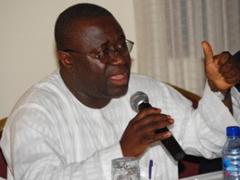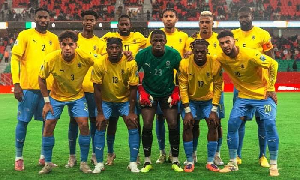Dr. Emmanuel Kwesi Aning, the Head of the Department of Research at the Kofi Annan International Peacekeeping Training Centre (KAIPTC) in Accra has revealed that there are over 2.3 million weapons [guns] in the custody of civilians in Ghana.
According to Dr. Aning, the challenges that Ghana faces with the control of small arms are much more serious and urgent measures must be taken to prevent guns ending up in the hands of civilians.
An unprecedented amount of sophisticated weapons were seized in Kumasi last year raising fears in many quarters about the potential for such weapons to fuel security breaches ahead of the November polls.
A few weeks after the Kumasi incident, Police and Customs officials at the Aflao border impounded arms and over one million bullets on its way to Accra. In January this year a Beninios national was also arrested at the Aflao border with over short guns concealed in a sack.
A few weeks ago a suspected terrorist, believed to have participated in the attack on an armoury in Ouagadougou was arrested in Ghana.
Speaking at Starr 103.5FM’s ‘Thought Leadership Summit” on security titled “Securing Ghana 2016: Fending off threats and safeguarding the peace,” at the Alisa Hotel Thursday, Dr. Aning said a recent study has revealed that Northern region had more than 39 percent of illegal guns in the country.
“The challenges that we face with small arms in this country are much more serious, underpinned by culture, history and a desire to re-enact old wars. Unfortunately the manufacture, sales, stockpiling and the trade is increasingly being criminalized.
“A major study that interviewed 10, 000 people in this country showing that for people of 18 years and above there is about 2.3 million guns available in this country.
"A regional segregation of where they are found showed that about 39 percent are in the Northern region and 19 percent are in Ashanti region...so the challenge is huge and it is growing,” Dr. Aning said.
Other thematic areas including the state of Ghana’s preparedness to respond to emerging national and sub-regional security threats in a globalized world, understanding Government’s position, media, and religious leaders: what role can they play in emerging security environment and is the security ready for emerging threats, were also discussed at the summit.
General News of Thursday, 4 February 2016
Source: starrfmonline.com
Challenges of gun control in Ghana
 Dr. Emmanuel Kwesi Aning
Dr. Emmanuel Kwesi Aning












